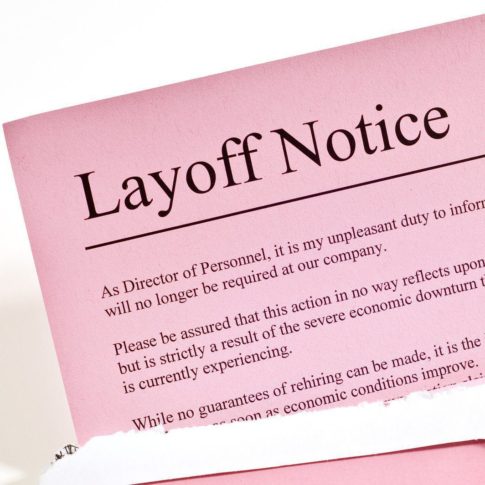Unemployment insurance (UI) is not the first policy we should be reaching for as the world grapples with the COVID-19 pandemic. Public health measures, implemented by governments at all levels—as well as by individuals, families, and employers—are the most important first steps. UI is not necessarily even the second type of policy to call on; the need for paid sick leave (which is both a public health measure and fiscal stimulus), robust food security policies, aid to states, targeted support for employers (especially small businesses in need of loan forbearance), and direct payments to individuals are some of the highest-priority economic measures that should be implemented immediately.
But it is becoming increasingly clear that, even if policymakers enact some of these measures, an economic slowdown is very likely. And as that slowdown occurs, jobs will become more scarce and the unemployment rate will rise. At that point, it will be crucial that the UI system works as intended, helping workers to make ends meet even after job loss. Well-functioning, generous UI will be important not just for families, but also as a support for the broader economy and a source of timely fiscal stimulus.
The good news is that UI has been a well-functioning automatic stabilizer in the past. The bad news is that many states have weakened their UI systems, reducing the maximum number of weeks that workers can receive benefits in a misguided effort to avoid what economists call “moral hazard,” i.e., the tendency for workers to delay job search in order to receive benefits. For example, North Carolina now only provides up to 12 weeks of insurance, far below the 26-week cap that was once the near-universal standard for states. Moreover, UI take-up has fallen over time and many states have very low UI participation in part because they have made it difficult for eligible workers to apply and/or have tightened eligibility requirements.
This all means that the UI system has deteriorated and will function as a less-effective automatic stabilizer if actions are not taken now. What can policymakers do to bolster it? The first three reforms would help in any economic slowdown, but the final two are targeted to the nature of the current crisis.
Mandate that states provide at least 26 weeks of regular UI benefits. Alabama, Arkansas, Florida, Georgia, Idaho, Kansas, Michigan, Missouri, North Carolina, and South Carolina all provide too few weeks of benefits to adequately protect workers from income loss after a layoff. Returning to the traditional standard of 26 weeks is a prerequisite for a working UI system.
Raise UI benefit levels for the duration of the economic slowdown. Emergency extensions of the number of weeks may also be called for, but they would only have substantial stabilization benefits later in a recession. More important in the short-run is to raise the average benefit level, which would immediately provide support to unemployed workers as well as fiscal stimulus. To maximize the amount of stimulus provided, the federal government should pay all of the costs of both the benefit amount increase and any emergency extension of UI benefits.
Loosen UI eligibility requirements and remove obstacles to take-up. States with very low UI recipiency rates are not providing a UI benefit that adequately protects workers or serves as sufficient fiscal stimulus. An economic slowdown will raise recipiency rates naturally, as it has in past recessions, but states must also remove unnecessary roadblocks to participation and loosen eligibility requirements.
Relax job search requirements for the duration of the COVID-19 pandemic. The usual concerns about UI moral hazard are much less relevant during a crisis like the one we face today. Our focus now should be on replacing the lost income of laid-off workers rather than maximizing recipients’ incentive to find new work. Once the crisis in the United States ends, the UI system can return to its typical balancing of concerns about moral hazard and its core insurance objective.
Discourage layoffs with a temporarily enhanced federal experience-rated UI tax for large employers. Employers are already subject to “experience-rated” taxes that in effect penalize them for conducting layoffs, requiring them to help support the UI system that their former employees rely on. These taxes have been shown to discourage job destruction. In the current crisis, policymakers should temporarily enhance—until the public health crisis ends—the federal experience-rated tax for large firms to discourage them from shedding workers. So that employers are not unduly burdened, this should be paired with a large subsidy to employers—conducted through the same UI tax system, in proportion to payroll—so that they come out ahead from this policy if they do not implement large-scale layoffs. This would function in some ways as an employee retention credit, aiding employers that resist the temptation to conduct layoffs.
The advantage of this policy is that the crisis may be hoped to end relatively quickly, after which employers may find that they do not, in fact, wish to cut their payroll dramatically. A temporary boost (until the public health crisis ends) to experience-rated taxes, coupled with transfers to employers, can let the UI system fight recessions even before workers receive benefits.
These are not the first policies that must be enacted to address the effects of COVID-19—this is first and foremost a public health crisis. But policymakers should be looking for every opportunity to strengthen our safety net and automatic stabilizers. These ambitious reforms to UI would accomplish both objectives. Americans are already experiencing tremendous anxiety about the very real public health dangers we all face—immiseration after job loss should not be added to the list of worries.



